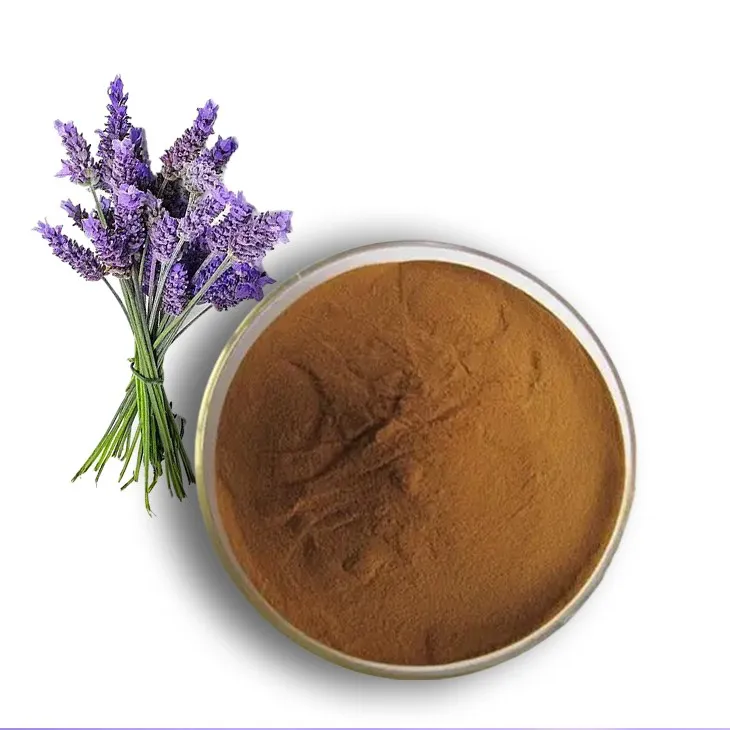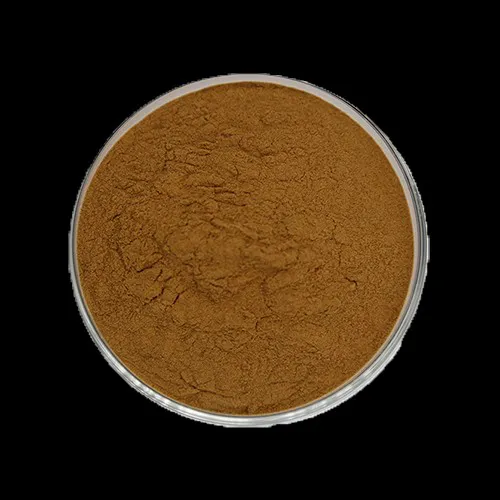- 0086-571-85302990
- sales@greenskybio.com
Is lavender extract beneficial for diabetes? Are these all safe and applicable for diabetic patients?
2024-11-13

1. Introduction
Diabetes is a chronic metabolic disorder that affects millions of people worldwide. Management of diabetes often involves lifestyle modifications, medications, and sometimes complementary and alternative therapies. Lavender, known for its pleasant aroma and various traditional uses, has been the subject of research regarding its potential benefits in diabetes. This article aims to explore whether Lavender Extract is advantageous for diabetes and its safety for diabetic patients from multiple perspectives.

2. Understanding Diabetes
2.1 Types of Diabetes
There are mainly two types of diabetes: type 1 and type 2.- Type 1 diabetes is an autoimmune disease where the body's immune system attacks and destroys the insulin - producing beta cells in the pancreas. People with type 1 diabetes require insulin injections for survival.
- Type 2 diabetes is more common and is often associated with lifestyle factors such as obesity, physical inactivity, and poor diet. In type 2 diabetes, the body either doesn't produce enough insulin or becomes resistant to its effects.
2.2 Complications of Diabetes
If not properly managed, diabetes can lead to a range of complications.- Cardiovascular problems, including heart disease and stroke.
- Neuropathy, which can cause pain, numbness, and weakness in the extremities.
- Retinopathy, which can lead to vision loss.
- Nephropathy, affecting the kidneys and potentially leading to kidney failure.

3. Lavender and Its Properties
3.1 Botanical Profile
Lavender (Lavandula spp.) is a flowering plant in the mint family, Lamiaceae. It is native to the Mediterranean region but is now cultivated worldwide. The plant has narrow, green - gray leaves and long - stemmed purple flowers.3.2 Chemical Composition
Lavender contains a variety of bioactive compounds, including:- Linalool, which has anti - inflammatory and antioxidant properties.
- Lavandulyl acetate, which contributes to the characteristic aroma of lavender.
- Rosmarinic acid, another antioxidant compound.

4. Potential Benefits of Lavender Extract for Diabetes
4.1 Anti - inflammatory Effects
Inflammation is often associated with diabetes. High blood glucose levels can lead to increased oxidative stress and inflammation in the body. Lavender Extract, with its anti - inflammatory compounds like linalool and rosmarinic acid, may help reduce inflammation. By reducing inflammation, it could potentially improve insulin sensitivity, especially in type 2 diabetes patients.4.2 Antioxidant Activity
Oxidative stress plays a significant role in the development and progression of diabetes. The antioxidants present in lavender extract, such as linalool and rosmarinic acid, can scavenge free radicals. This antioxidant activity may protect pancreatic beta cells from oxidative damage, thereby potentially maintaining their function and insulin production. In type 1 diabetes, where beta cells are attacked by the immune system, this protection could be beneficial, although it may not reverse the autoimmune process.4.3 Stress and Anxiety Reduction
Diabetes management can be a source of stress for patients. Stress can also affect blood glucose levels, leading to increased hyperglycemia. Lavender has long been known for its calming and stress - relieving properties. By reducing stress and anxiety, it may indirectly help diabetic patients better manage their blood glucose levels. For example, stress reduction may lead to more consistent eating habits and better compliance with diabetes treatment regimens.5. Research Evidence
5.1 In - vitro Studies
Some in - vitro studies have shown promising results. For instance, research on cell cultures has demonstrated that lavender extract can modulate certain signaling pathways related to inflammation and insulin sensitivity. However, in - vitro studies have limitations as they do not fully represent the complex in - vivo environment of the human body.5.2 Animal Studies
Animal studies have also provided some evidence. In diabetic animal models, lavender extract supplementation has been shown to improve blood glucose control, reduce markers of inflammation, and improve antioxidant status. For example, in a study on diabetic rats, those given lavender extract had lower fasting blood glucose levels compared to the control group. However, differences in animal physiology compared to humans mean that these results cannot be directly extrapolated to human patients.5.3 Human Studies
There are currently limited human studies on the effects of lavender extract in diabetes. Some small - scale studies have suggested that lavender aromatherapy may have a positive impact on stress levels in diabetic patients, which could potentially affect blood glucose control. However, more large - scale, well - designed clinical trials are needed to determine the true efficacy of lavender extract in diabetes management.6. Safety of Lavender Extract for Diabetic Patients
6.1 General Safety
Lavender extract is generally considered safe for most people when used in moderation. However, some individuals may experience allergic reactions to lavender. Allergic symptoms can range from mild skin rashes to more severe respiratory problems. Diabetics should be cautious when using lavender - based products, especially if they have a history of allergies.6.2 Interaction with Medications
One of the main concerns regarding the safety of lavender extract for diabetic patients is its potential interaction with diabetes medications. For example, lavender may interact with insulin or oral hypoglycemic agents. It could potentially enhance the hypoglycemic effect, leading to dangerously low blood glucose levels. Therefore, diabetic patients should consult their healthcare providers before using lavender extract, especially if they are taking multiple medications.6.3 Quality and Purity of Lavender Extract
The quality and purity of lavender extract can vary depending on the source and extraction methods. Some lavender products may be contaminated with pesticides or other harmful substances. Diabetic patients should ensure that they use high - quality, pure lavender extract from reliable sources to avoid any potential adverse effects.7. How to Use Lavender Extract for Diabetics (if Appropriate)
7.1 Aromatherapy
If a diabetic patient wishes to use lavender for its potential stress - relieving benefits, aromatherapy can be a relatively safe option. This can be done by using lavender essential oil in a diffuser or by inhaling the aroma from a lavender - scented sachet. However, care should be taken to ensure that the essential oil is pure and not diluted with potentially harmful substances.7.2 Topical Application
Some diabetics may consider using lavender - based creams or lotions for skin conditions or relaxation. When applying lavender - based products topically, a small area of skin should be tested first to check for any allergic reactions. Also, these products should not be applied to broken skin, as this may increase the risk of absorption and potential interaction with medications.7.3 Dietary Supplementation
If considering lavender extract as a dietary supplement, it is crucial to consult a healthcare provider first. They can assess the potential benefits and risks based on the patient's individual health status, including their diabetes management, and any medications they are taking.8. Conclusion
While there are some theoretical reasons and preliminary research evidence suggesting that lavender extract may have potential benefits for diabetes, more research, especially large - scale human clinical trials, is needed. The safety of lavender extract for diabetic patients also requires careful consideration, particularly regarding potential interactions with medications and individual allergic reactions. Diabetic patients should always consult their healthcare providers before using lavender - based products as part of their diabetes management or complementary therapies.
FAQ:
1. What is lavender extract?
Lavender extract is a substance obtained from the lavender plant. It contains various components such as essential oils, flavonoids, and phenolic acids. These components are thought to have potential biological activities.
2. How could lavender extract potentially benefit diabetes?
Some studies suggest that the flavonoids in lavender extract may have antioxidant and anti - inflammatory properties. In diabetes, oxidative stress and inflammation are often increased. By reducing these factors, it might help improve insulin sensitivity, regulate blood sugar levels, and potentially reduce some of the complications associated with diabetes. However, more research is needed to fully confirm these effects.
3. Are there any potential risks of lavender extract for diabetic patients?
Although lavender is generally considered safe, some people may be allergic to it. For diabetic patients, if they have an allergic reaction to lavender extract, it could cause various symptoms like skin rashes, itching, or in severe cases, respiratory problems. Also, lavender extract may interact with certain medications that diabetic patients are taking, so it's important to consult a doctor before using it.
4. How can diabetic patients use lavender extract safely?
If a diabetic patient wants to use lavender extract, they should first consult their doctor or a healthcare professional. They should start with a small amount to see if there are any adverse reactions. If no problems occur, they can follow the recommended dosage. It's also crucial to ensure that the lavender extract is from a reliable source.
5. Has there been enough research on the effect of lavender extract on diabetes?
Currently, the research on the effect of lavender extract on diabetes is still limited. While some in - vitro and animal studies have shown promising results, more large - scale, long - term human studies are required to determine its true efficacy and safety for diabetic patients.
Related literature
- The Potential of Lavender in Diabetes Management: A Review of Current Evidence"
- "Lavender Extract and its Impact on Metabolic Disorders including Diabetes"
- "Safety and Efficacy of Botanical Extracts in Diabetic Patients: A Focus on Lavender"
- ▶ Hesperidin
- ▶ Citrus Bioflavonoids
- ▶ Plant Extract
- ▶ lycopene
- ▶ Diosmin
- ▶ Grape seed extract
- ▶ Sea buckthorn Juice Powder
- ▶ Fruit Juice Powder
- ▶ Hops Extract
- ▶ Artichoke Extract
- ▶ Mushroom extract
- ▶ Astaxanthin
- ▶ Green Tea Extract
- ▶ Curcumin
- ▶ Horse Chestnut Extract
- ▶ Other Product
- ▶ Boswellia Serrata Extract
- ▶ Resveratrol
- ▶ Marigold Extract
- ▶ Grape Leaf Extract
- ▶ New Product
- ▶ Aminolevulinic acid
- ▶ Cranberry Extract
- ▶ Red Yeast Rice
- ▶ Red Wine Extract
-
Bilberry Extract
2024-11-13
-
Hops Extract
2024-11-13
-
Saffron Extract Powder
2024-11-13
-
Black Garlic Extract
2024-11-13
-
Dan Shen Root Extract/Salvia Root Extract
2024-11-13
-
Acerola Juice Powder
2024-11-13
-
Curcumin
2024-11-13
-
Milk Thistle Extract
2024-11-13
-
White mustard seed extract
2024-11-13
-
Nettle leaf extract
2024-11-13





















